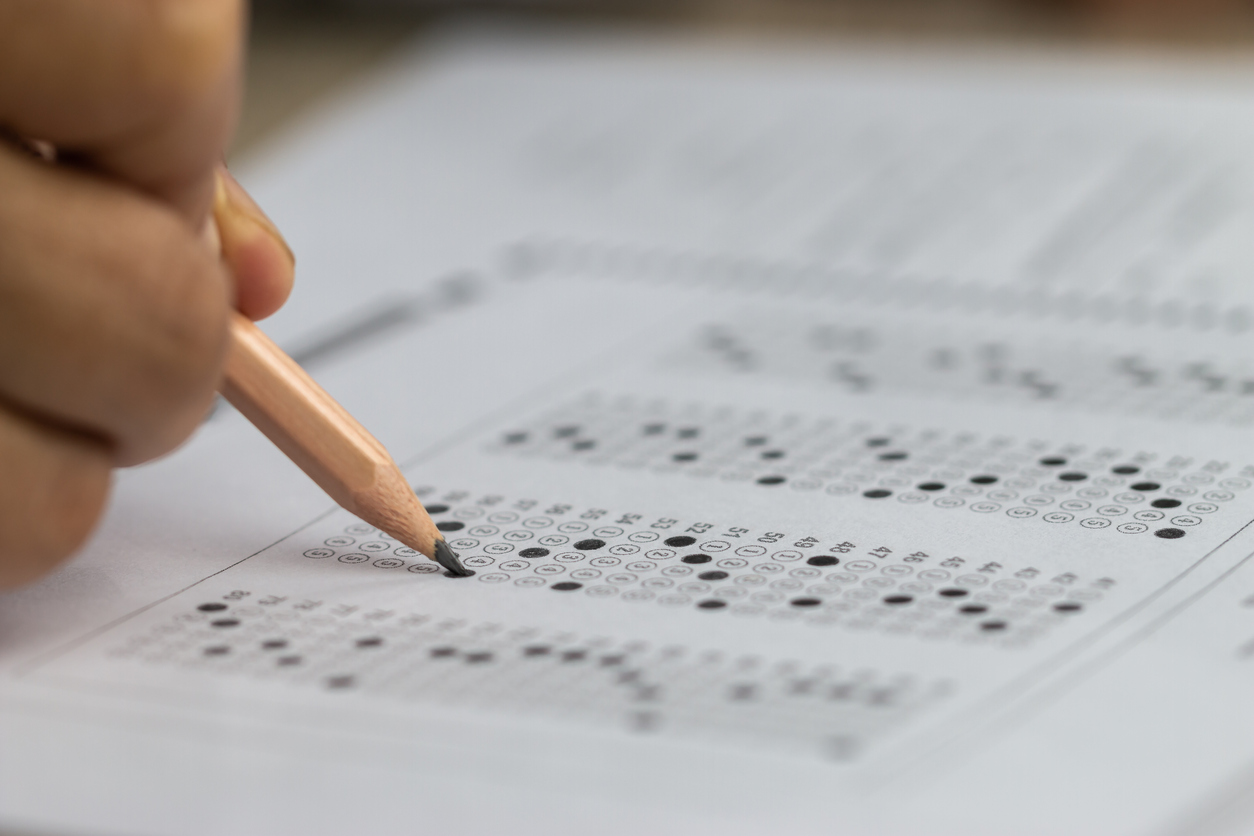When Grades and Test Scores Don’t Add Up, Who Can Parents Trust?
Adams: Grade inflation has been a problem for decades. With COVID canceling standardized tests, it's gotten even worse

Get stories like these delivered straight to your inbox. Sign up for The 74 Newsletter
My daughter finished her first year of New York City public high school in June. She received A’s in all of her subjects. She also took state Regents exams in two of them. New York state public school students must pass five of the 11 Regents exams offered — one in English, one in math, one in science, one in social studies and a fifth one of the student’s choice — to graduate.
My daughter passed both Regents. A score of 65 is all that’s necessary, and the results are curved so that sometimes, all you need to pass is to answer one-third of the questions correctly. A score of 85 and above indicates “mastery,” which some New York City and state colleges require for admission. My straight-A-student daughter received the “mastery” designation on only one of her Regents. (I have her permission to share this information.)
My daughter isn’t alone in this disconnect: top grades when evaluated by teachers but test scores that suggest a student hasn’t fully mastered the material.
Since the turn of this century, tens of thousands of New York City students have passed their classes and gotten promoted while failing their state tests. It was true in 1999. It was true in 2015, when some schools with 92% of students logging A and B grade point averages had not one judged proficient on the state tests. And it was true in 2019, the last year the Regents were administered before they were canceled for two years due to the pandemic.
Not surprisingly, when the exams were on hold, New York state high school graduation rates shot upward. In Buffalo, the 2019 graduation rate was 65%. By 2020, it had increased to 76%, and in 2021, it was 79%.
More students certainly received a high school diploma. But were they prepared for college work or a career?
This is hardly a new question, and it definitely isn’t limited to New York and its Regents exams.
In his 2018 book, How Schools Work: An Inside Account of Failure and Success From One of the Nation’s Longest-Serving Secretaries of Education. President Barack Obama’s secretary of education, Arne Duncan, exposed the problem with this anecdote from his time in Chicago:
Calvin Williams, a rising high school senior on the B honor roll, could read and write at a second- or third-grade level. … The most insidious part of the whole thing was that he didn’t know what he didn’t know. … Perhaps worse still, the school and his teachers also didn’t know that Calvin was so far behind. As far as they were concerned, Calvin was an actual B student.
The big lies are the ones that the system tells to parents about how their kids are learning.
68% of community college students and 40% of public four-year college students take at least one high school-level class because they’re not ready for college coursework.
Simple stuff like basic algebra or subject-verb agreement need to be “remediated” for these students because they’re unprepared. Even some kids who graduate with honors or with GPAs above 4.0 aren’t ready — because the system lied to them. … Kids who think they’re doing very well at the end of middle school are wrong. They’re not ready for high school — not even close.
My daughter is my third child to go through the public school system. I have sat in more than one conference where a teacher explained: We don’t have time to cover all the material that’s included on the state exams/Regents/Advanced Placement tests. And when I asked students at some of the city’s top high schools about the preparation they received, I received answers that included:
The teacher flat out told us we wouldn’t get everything we needed from taking notes in class and doing the reading….
Whether it would be a math class where we were given the textbook and taught how to do the first part of a question in class, but had to teach ourselves the rest at home, or social studies tests that had more material that was covered out of class than in class…. There were plenty of times where we had to learn ourselves.
She said she didn’t have time to teach everything that was required for the course, so she wasn’t going to, we’d have to do it ourselves if we wanted to do well on the AP exam….
But the bigger question here, whether we’re talking about New York City, New York State, Chicago or the whole of America — where, according to a 2016 report, only 37% of students are prepared for college-level math and reading — is whom should we believe when it comes to how our children are doing. Is it the classroom teachers who insist they know the kids best and that their day-to-day observations trump any exam administered once a year? Or a test given to all students in the same grade in order to assess how they compare to one another and to state standards?
I tend to lean toward the latter. It’s why, when selecting high schools for my children, I paid no attention to graduation rates and, instead, focused on college-readiness numbers. That felt less subjective, and thus more legitimate.
If it truly is the case that there isn’t enough time to cover all the topics tested in state assessments, Regents or AP exams in a given academic year, then either rewrite the tests to better line up with the curriculum or rewrite the curriculum to better line up with the assessments.
While it’s reasonable to receive a 92 in class and, say, an 85 on a standardized test — in-class work could include participation, extra credit, hands-on projects and more — it should raise red flags when a student gets a report card grade of 95 and a Regents score so low that a student can’t graduate.
Over a decade ago, Duncan worried about the lies families were being fed about how well their children were performing academically. Looking at my daughter’s Regents scores, I worry that I am now one of those families. And I worry even more about the families who don’t know that they should be worrying. They’ve been told that standardized tests don’t matter, that it might even be best to just opt out altogether.
But those scores are a second opinion of sorts. They either confirm the teacher’s view of your child, or they should at least inspire parents to look closer. Teachers watch our kids, but we parents should be watching the teachers. And standardized tests are just one of the tools available to us.
Get stories like these delivered straight to your inbox. Sign up for The 74 Newsletter

;)

